Fujifilm Medical Systems Europe Highlights AI Initiative in Austria
|
By MedImaging International staff writers Posted on 28 Feb 2019 |
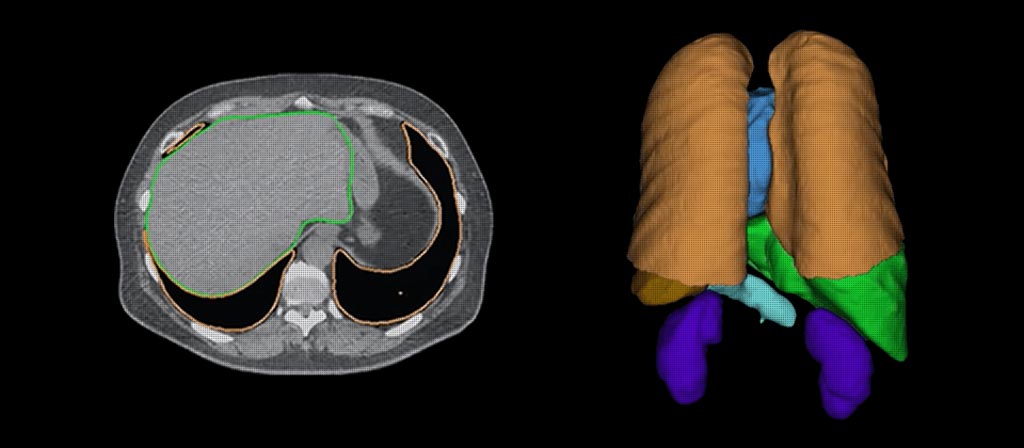
Image: With REiLI, Fujifilm is developing a technology to accurately recognize and consistently extract organ regions, regardless of deviations in shape, presence or absence of disease, and imaging conditions (Photo courtesy of Fujifilm Medical Systems).
Fujifilm Medical Systems Europe (Düsseldorf, NRW) celebrated SYNAPSE 20 years anniversary and presented REiLI, the company's global Medical Imaging and Informatics Artificial Intelligence (AI) technology initiative, at the European Congress of Radiology (ECR) annual meeting held from February 27th to March 3rd, 2019 at Austria Congress Center in Vienna, Austria. At FUJIFILM’s in-booth AI Center, visitors were offered live demonstrations of AI delivering enhanced workflows.
Under the REiLI brand, Fujifilm is developing AI technologies that strongly support diagnostic imaging workflow, leveraging the combination of deep learning in its AI technology with the company’s image processing heritage. The applications currently under development include: Region Recognition, an AI technology to accurately recognize and consistently extract organ regions, regardless of deviations in shape, presence or absence of disease, and imaging conditions; Computer Aided Detection, an AI technology to reduce the time of image interpretation and support radiologists' clinical decision making; Workflow Support, using AI technology to realize optimal study prioritization, alert communications of AI findings, and report population automation.
Fujifilm Healthcare’s IT platform showcased at ECR 2019 included its comprehensive medical informatics and enterprise-imaging portfolio, such as SYNAPSE 5, the next generation PACS and one of the fastest medical imaging solutions in the industry, offering sub second delivery of extremely large datasets; SYNAPSE VNA, the most secure, comprehensive application for storing and providing access to the complete imaging records; SYNAPSE MOBILITY Enterprise Viewer which uses the latest server-side rendering technology to stream imaging securely and quickly to any authorized user; SYNAPSE 3D, an enterprise-wide solution for quickly accessing 3D images and designed for use across multiple specialties, including radiology, cardiology, surgery and more; SYNAPSE CWM, a Clinical Workflow Manager and the most advanced radiology information system on the market today; and SYNCRO-DOSE, a radiation dose index monitoring system that is compliant with the Directive 2013/59/EURATOM of the European Union.
Under the REiLI brand, Fujifilm is developing AI technologies that strongly support diagnostic imaging workflow, leveraging the combination of deep learning in its AI technology with the company’s image processing heritage. The applications currently under development include: Region Recognition, an AI technology to accurately recognize and consistently extract organ regions, regardless of deviations in shape, presence or absence of disease, and imaging conditions; Computer Aided Detection, an AI technology to reduce the time of image interpretation and support radiologists' clinical decision making; Workflow Support, using AI technology to realize optimal study prioritization, alert communications of AI findings, and report population automation.
Fujifilm Healthcare’s IT platform showcased at ECR 2019 included its comprehensive medical informatics and enterprise-imaging portfolio, such as SYNAPSE 5, the next generation PACS and one of the fastest medical imaging solutions in the industry, offering sub second delivery of extremely large datasets; SYNAPSE VNA, the most secure, comprehensive application for storing and providing access to the complete imaging records; SYNAPSE MOBILITY Enterprise Viewer which uses the latest server-side rendering technology to stream imaging securely and quickly to any authorized user; SYNAPSE 3D, an enterprise-wide solution for quickly accessing 3D images and designed for use across multiple specialties, including radiology, cardiology, surgery and more; SYNAPSE CWM, a Clinical Workflow Manager and the most advanced radiology information system on the market today; and SYNCRO-DOSE, a radiation dose index monitoring system that is compliant with the Directive 2013/59/EURATOM of the European Union.
Latest ECR 2019 News
- ScreenPoint Medical Presents AI Application for Detecting Breast Cancer
- PaxeraHealth Showcases Advanced Image Sharing Platform at ECR
- iCAD Presents Latest AI Solution for Digital Breast Tomosynthesis
- Philips Introduces Software to Support Diagnostic Confidence
- Canon Medical Systems Showcases Wide Product Lineup in Vienna
- Radcal Demonstrates New Stand-Alone System at Imaging Trade Fair
- SuperSonic Imagine Introduces Ultrasound System at ECR
- Esaote Presents Latest Ultrasound Technologies and AI-based Solutions at ECR
- Agfa HealthCare Demonstrates Enterprise Imaging and DR at ECR Trade Show
- Carestream Health Exhibits Advanced Imaging and IT Platforms in Austria
- Guerbet Displays New Multi-Use Injector at ECR 2019
- Shimadzu Europa Demonstrates Diagnostic Imaging and Analytical Technologies
- Barco Presents Latest Displays at 2019 European Congress of Radiology
- EIZO Presents New Radiological Monitor Solutions at Vienna Trade Fair
- Konica Minolta Presents Mobile Innovations at ECR
Channels
Radiography
view channel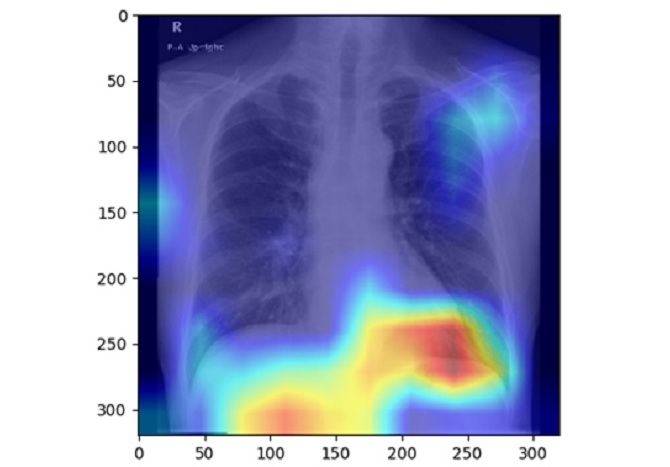
AI Detects Fatty Liver Disease from Chest X-Rays
Fatty liver disease, which results from excess fat accumulation in the liver, is believed to impact approximately one in four individuals globally. If not addressed in time, it can progress to severe conditions... Read more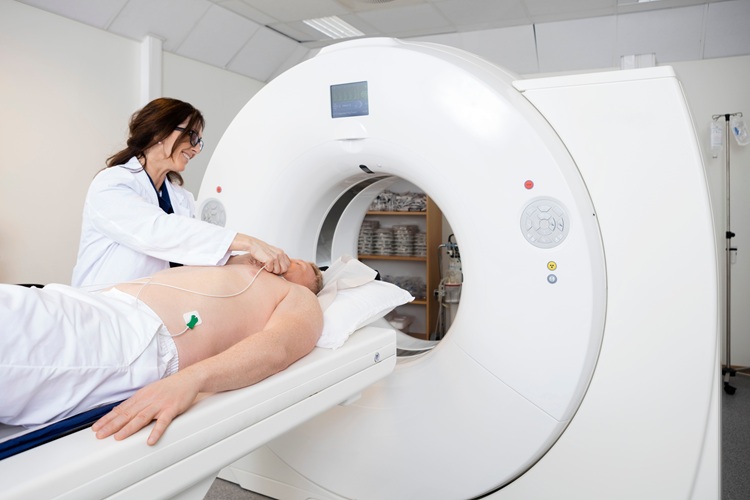
AI Detects Hidden Heart Disease in Existing CT Chest Scans
Coronary artery calcium (CAC) is a major indicator of cardiovascular risk, but its assessment typically requires a specialized “gated” CT scan that synchronizes with the heartbeat. In contrast, most chest... Read moreMRI
view channel
New MRI Technique Reveals Hidden Heart Issues
Traditional exercise stress tests conducted within an MRI machine require patients to lie flat, a position that artificially improves heart function by increasing stroke volume due to gravity-driven blood... Read more
Shorter MRI Exam Effectively Detects Cancer in Dense Breasts
Women with extremely dense breasts face a higher risk of missed breast cancer diagnoses, as dense glandular and fibrous tissue can obscure tumors on mammograms. While breast MRI is recommended for supplemental... Read moreUltrasound
view channel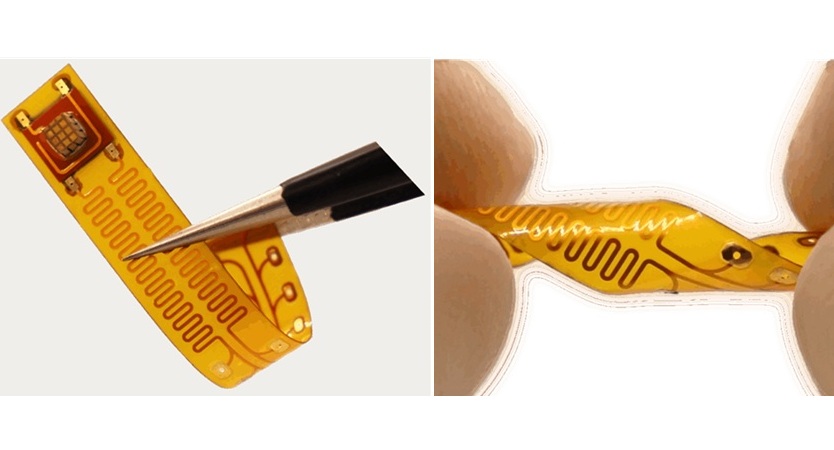
Wireless Chronic Pain Management Device to Reduce Need for Painkillers and Surgery
Chronic pain affects millions of people globally, often leading to long-term disability and dependence on opioid medications, which carry significant risks of side effects and addiction.... Read more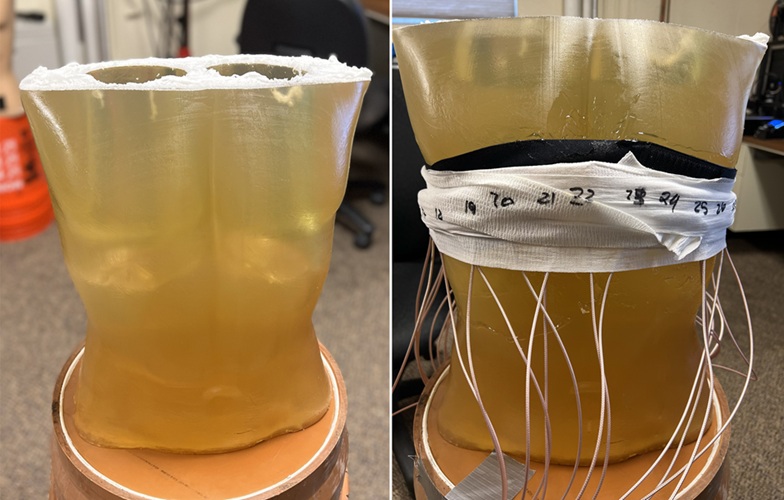
New Medical Ultrasound Imaging Technique Enables ICU Bedside Monitoring
Ultrasound computed tomography (USCT) presents a safer alternative to imaging techniques like X-ray computed tomography (commonly known as CT or “CAT” scans) because it does not produce ionizing radiation.... Read moreNuclear Medicine
view channel
Novel Bacteria-Specific PET Imaging Approach Detects Hard-To-Diagnose Lung Infections
Mycobacteroides abscessus is a rapidly growing mycobacteria that primarily affects immunocompromised patients and those with underlying lung diseases, such as cystic fibrosis or chronic obstructive pulmonary... Read more
New Imaging Approach Could Reduce Need for Biopsies to Monitor Prostate Cancer
Prostate cancer is the second leading cause of cancer-related death among men in the United States. However, the majority of older men diagnosed with prostate cancer have slow-growing, low-risk forms of... Read moreGeneral/Advanced Imaging
view channel
CT Colonography Beats Stool DNA Testing for Colon Cancer Screening
As colorectal cancer remains the second leading cause of cancer-related deaths worldwide, early detection through screening is vital to reduce advanced-stage treatments and associated costs.... Read more
First-Of-Its-Kind Wearable Device Offers Revolutionary Alternative to CT Scans
Currently, patients with conditions such as heart failure, pneumonia, or respiratory distress often require multiple imaging procedures that are intermittent, disruptive, and involve high levels of radiation.... Read more
AI-Based CT Scan Analysis Predicts Early-Stage Kidney Damage Due to Cancer Treatments
Radioligand therapy, a form of targeted nuclear medicine, has recently gained attention for its potential in treating specific types of tumors. However, one of the potential side effects of this therapy... Read moreImaging IT
view channel
New Google Cloud Medical Imaging Suite Makes Imaging Healthcare Data More Accessible
Medical imaging is a critical tool used to diagnose patients, and there are billions of medical images scanned globally each year. Imaging data accounts for about 90% of all healthcare data1 and, until... Read more
Global AI in Medical Diagnostics Market to Be Driven by Demand for Image Recognition in Radiology
The global artificial intelligence (AI) in medical diagnostics market is expanding with early disease detection being one of its key applications and image recognition becoming a compelling consumer proposition... Read moreIndustry News
view channel
GE HealthCare and NVIDIA Collaboration to Reimagine Diagnostic Imaging
GE HealthCare (Chicago, IL, USA) has entered into a collaboration with NVIDIA (Santa Clara, CA, USA), expanding the existing relationship between the two companies to focus on pioneering innovation in... Read more
Patient-Specific 3D-Printed Phantoms Transform CT Imaging
New research has highlighted how anatomically precise, patient-specific 3D-printed phantoms are proving to be scalable, cost-effective, and efficient tools in the development of new CT scan algorithms... Read more
Siemens and Sectra Collaborate on Enhancing Radiology Workflows
Siemens Healthineers (Forchheim, Germany) and Sectra (Linköping, Sweden) have entered into a collaboration aimed at enhancing radiologists' diagnostic capabilities and, in turn, improving patient care... Read more













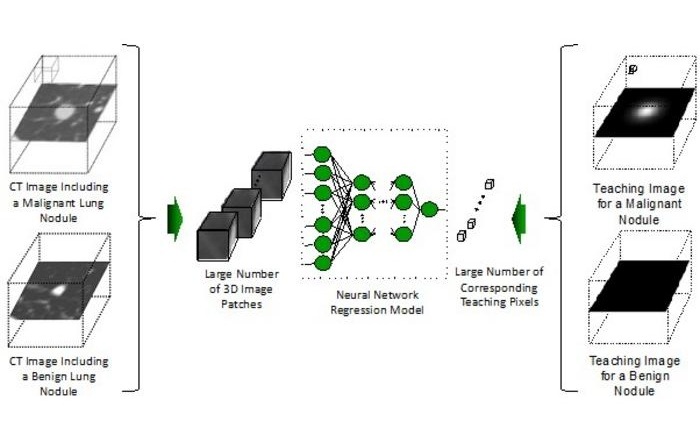
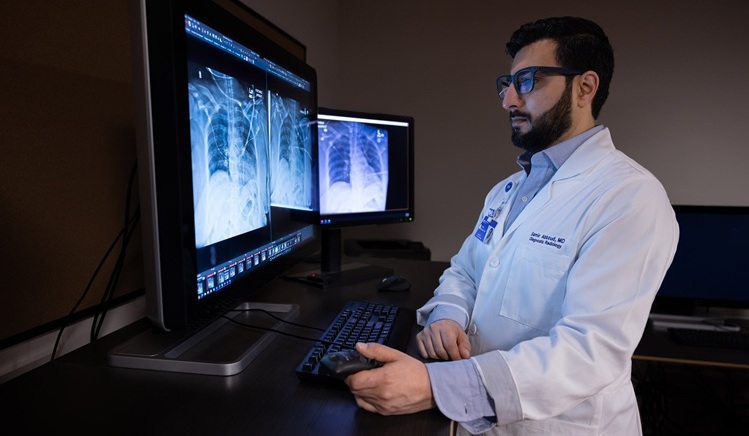



.jpeg)




